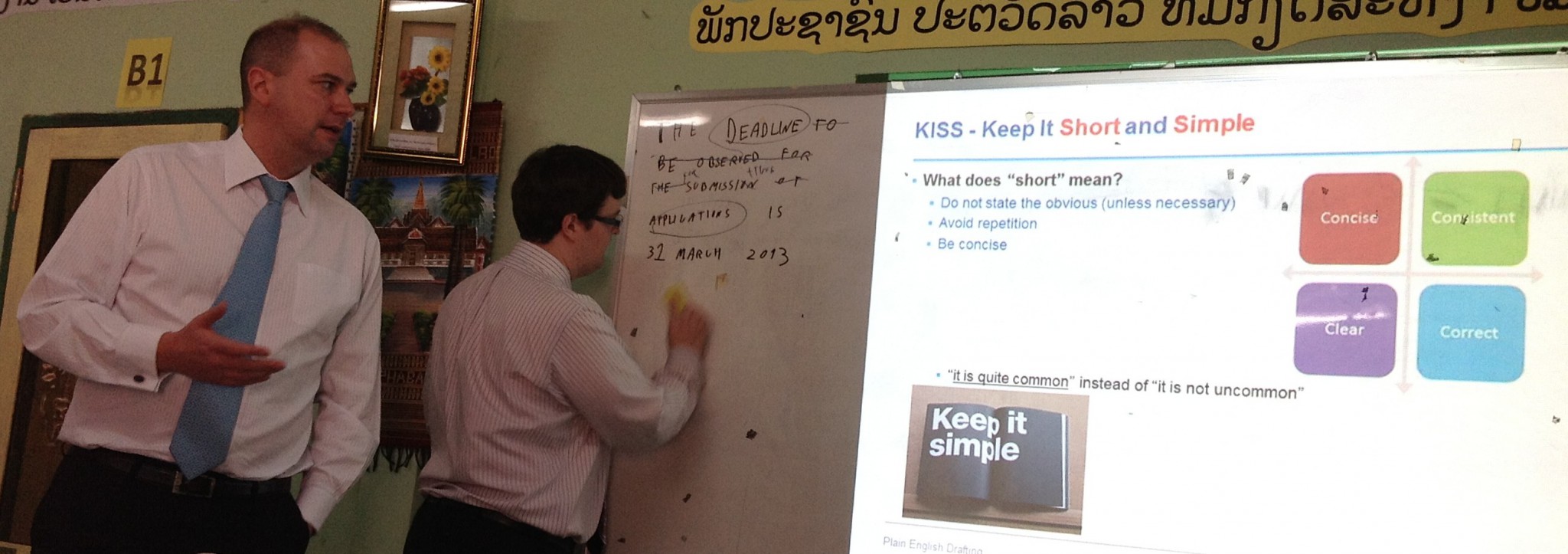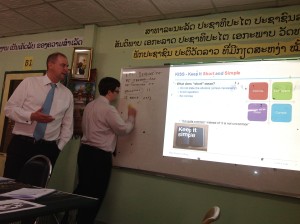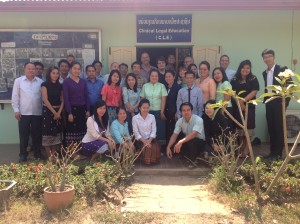By Pham Chung: Vietnam Law Lecturer Intern at BABSEACLE
National University of Laos, Faculty of Law & Political Science. Vientiane , Laos.
The Faculty of Law & Political Science (FLP) at the National University of Laos, Lux Development, and Bridges Across Borders Southeast Asia Community Legal Education Initiative (BABSEACLE) organized a two-day training workshop on “Legal Writing”. The workshop was held at the CLE office in Vientiane from 22nd to 23rd February 2013. The workshop allowed for the exchanging and sharing of experiences between lecturers, lawyers, and CLE staff from different countries such as Laos, Singapore, and Thailand. The presenters in this workshop were two lawyers from an international law firm called White & Case.
It is standard practice that legal letters are written in the author’s native language. However, as our work begins to branch outside our nation and towards other international countries, we often have to write or translate legal letters into many different languages, primarily English. Hence this workshop was conducted in order to achieve some of the following objectives: Improve English writing skills which in turn improves the ability to read legal documents ; increase the understanding of and the use of the English language and, most importantly, to increase our understanding of English legal vocabulary.
At the end of the workshop, participants achieved the following in their writing skills: Think before you write, focus on the reader, and make your document understandable; keep the content short and simple (KISS); cut out excess nouns, avoid the abstract language, and use the active tense. Also beware of false friends (words that look similar actual but have totally different meaning), avoid jargon and abbreviations, revise the letter if applicable and check all details for accuracy. These are important elements for writing a legal document and should be memorized as they will assist you in improving your quality of work.
In English, there are many words that have different meanings depending on the context. The workshop addressed a number of English legal terms that will be useful when writing legal letters in English. For example, we learned different uses of the words materiality, reasonable, remedies and waivers.
During the workshop participants discussed and solved problems together and provided positive feedback There was a lot of lively discussion and the session ended with a satisfied audience.



